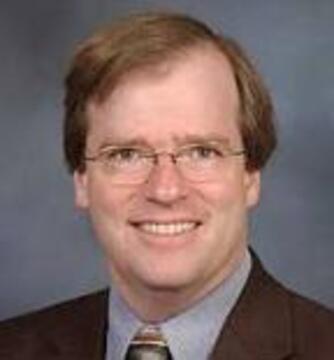Daniel Harrison
Specializations: music theory.
About: B.A. Stanford University, with distinction and honors; 1981
Ph.D. Yale University; 1986
My chief research interest is in tonal theory, especially at historical margins of the common-practice era. A 1986 dissertation on the music of Max Reger was the springboard for Harmonic Function in Chromatic Music (Chicago, 1994), which offered a theory and some analytic tools based on late nineteenth-century ideas on harmony, chiefly those of Hugo Riemann. (I find the history of music theory to be an especially rewarding field of study.) Further developments of this project were undertaken in “Supplement to the Theory of Augmented Sixth Chords” and “Nonconformist Notions of Nineteenth–Century Enharmonicism,” and “Three Short Essays on Neo-Riemannian Theory.” (See curriculum vitae for details of publication.)
My most recent work— Pieces of Tradition: An Analysis of Contemporary Tonality (Oxford, 2016)—has focused on a later repertory, tonal music of the last century. I have investigated ways in which a variety of composers—among whom are notables such as Hindemith, Shosatkovich, Prokofiev, Hindemith, Messiaen, and Barber—maintained, adapted, and developed traditional compositional materials. As part of my interest in contemporary tonality, I also have a stake in the analysis of popular music, chiefly from the 1960s and 70s, and specifically the music of The Beach Boys. I’ve given a few conference papers in this area and published two close studies, “After Sundown: The Beach Boys’’ Experimental Music” (in the collection Understanding Rock), and “Pet Sound Effects’’ (in the collection Good Vibrations). I also appeared in a Don Was documentary on Brian Wilson, I Just Wasn’t Made for These Times (1995).
Lately, my attention has been returning to 17th- and 18th-century counterpoint, the subject of my first publications (“Some Group Properties of Triple Counterpoint and their Influence on Compositions by J. S. Bach,” and “Rhetoric and Fugue: An Analytical Application”). More recent work has included “Rosalia, Arcangelo, and Aloysius: A Genealogy of the Sequence” and “Heads and Tails: Subject Play in Bach’s Fugues.” I intend to tie this work together in a book for which I can find no better title at the moment than Fugue. Connected with this interest, I look forward to working on musical rhetoric more broadly, especially on techniques of proposition and argument and their realization in performance.
At both Yale and at the University of Rochester’s Eastman School of Music, I’ve taught graduate courses in chromatic music and analysis; contemporary tonality ; counterpoint and fugue; analysis of rock music; the pedagogy of music theory; and the writing of music theory and analysis. I’ve advised dissertations on a variety of tonal-music topics. Recent students have written about film music, enharmonicism, video-game music, extended harmony, the English madrigal, pop-song form, and theosophically-informed study of Scriabin’s Prometheus. I would be happy to continue supervising research in such areas as well as in the history of music theory, rhetorical-narrative analysis, analysis of sacred music, and improvisation.
My primary instrument is the organ, which I studied with Herbert Nanney at Stanford and Robert Baker at Yale. In Rochester, I was assistant to renowned recitalist David Craighead at St. Paul’s Episcopal church for twelve years. I currently sing bass in the choir of St. Thomas’s Episcopal Church in New Haven. Among my other musical experiences is a stint as an arranger and bass-pan player in the steel-drum band Calliope’s Children.
Links: More information, including a complete curriculum vitae and some research papers in draft form, is available on my homepage.
